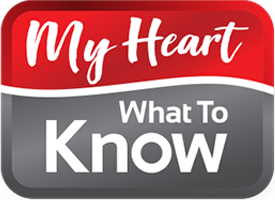Heart disease is the leading cause of death among women in North America, claiming almost ten times more lives each year than breast cancer. Yet, breast cancer receives far more attention in the media. In a recent interview, cardiologist Dr. Tara Sedlak shared her expertise on women’s heart health– shedding light on prevention, risk factors, and the unique challenges women face.
Heart Disease: A Silent Epidemic Among Women
“Heart disease is one of the major causes of mortality among women in Canada,” says Dr. Sedlak. For years, mortality rates from heart disease steadily declined in men but remained unchanged in women. Only in the past decade have we seen a decrease in deaths among women, largely due to education, advocacy, and advances in research.
Heart disease isn’t a singular condition; it encompasses various issues such as blocked arteries, irregular heart rhythms (arrhythmias), and heart failure. These conditions manifest differently in women compared to men, with women sometimes experiencing subtler symptoms like chest tightness, fatigue, and jaw or back pain, rather than the “elephant on the chest” sensation often associated with heart attacks that is more commonly experienced by men.
Key Life Stages That Impact Heart Health
Dr. Sedlak emphasizes the importance of viewing life events, such as pregnancy and menopause, as “windows into cardiovascular health.” For instance, conditions like pre-eclampsia during pregnancy can double a woman’s long-term risk of heart disease. Similarly, women who experience early menopause (before age 40) are at a higher risk of developing heart issues later in life.
“These are sex-specific risk factors that we call attention to,” explains Dr. Sedlak. Historically, research predominantly focused on men, but increasing attention to women-specific factors is now providing valuable insights.
Unique Challenges in Diagnosing Heart Disease in Women
While blockages in large arteries are the most common cause of heart attacks, Dr. Sedlak highlights conditions more prevalent in women, such as microvascular dysfunction and spontaneous coronary artery dissection (SCAD). Atrial fibrillation (AF), an irregular heartbeat, is also more common in women, particularly as they age. Alarmingly, women often present with more severe complications, such as strokes, due to delays in diagnosis.
Prevention: The Good News
The silver lining is that many heart issues can be prevented. Dr. Sedlak advises women to focus on five key areas:
- Know Your Numbers: Regularly monitor blood pressure, cholesterol, blood sugar, and weight. Optimal blood pressure is around 120/70 mmHg, and waist circumference is a better indicator of cardiovascular risk than BMI.
- Adopt a Healthy Diet: Dr. Sedlak recommends the Mediterranean diet for its heart-protective benefits.
- Exercise Regularly: Aim for 30 minutes of moderate-to-vigorous exercise five times a week. “Exercise has profound benefits, even without weight loss,” she notes.
- Manage Mental Health: Stress, anxiety, and depression are significant risk factors, especially for women. Prioritize mental well-being as part of overall heart health.
- Focus on Reaching A Healthier Weight: Even a modest 5-10% reduction in weight can lead to measurable improvements in blood pressure, cholesterol, and diabetes control.
Alcohol and Heart Health
Excessive alcohol consumption increases the risk of atrial fibrillation and heart failure. Dr. Sedlak suggests adhering to guidelines recommending only a few drinks per week.
Advocacy and Education
Raising awareness is vital for reducing heart disease rates among women. Dr. Sedlak encourages participation in events like the Wear Red Canada campaign held each February. “It’s an opportunity to educate, advocate, and inspire women to take charge of their heart health.”
A Final Word
Dr. Sedlak leaves us with an empowering reminder: “Heart disease is a major killer among women, but many risk factors are modifiable. Taking steps to manage your weight, blood pressure, cholesterol, exercise, and diet can significantly reduce your risk.”
By staying informed and proactive, women can not only protect their hearts but also inspire others to do the same.
—
An important step towards better health for many people is reaching a healthier weight, which can reduce the risk of cardiovascular disease. To find a physician near you who specializes in weight management, click here.
—
All the information provided on this site is for educational purposes only and is not a substitute for professional medical advice, diagnosis, or treatment. My Heart – What To Know is not a healthcare provider or clinic. ALWAYS consult with a qualified healthcare provider regarding any questions you may have about a medical condition. Never disregard professional medical advice or delay in seeking it because of something you have read on this website. If you think you may have a medical emergency, call 911 or go to the nearest emergency room immediately. No physician-patient relationship is created by this website or its use.
This article was sponsored by Novo Nordisk Canada. All content is created independently by My Heart – What To Know with no influence from Novo Nordisk.

